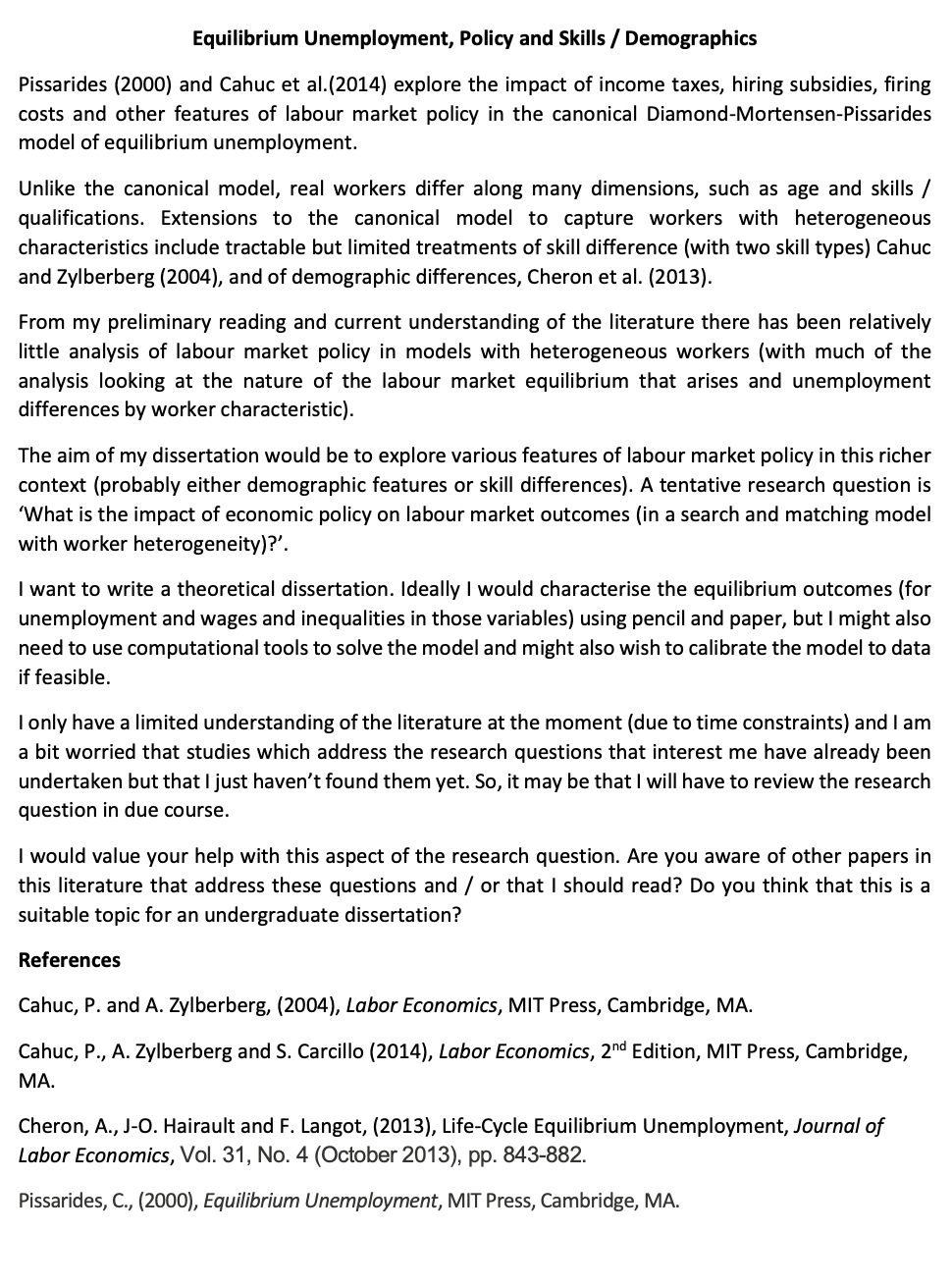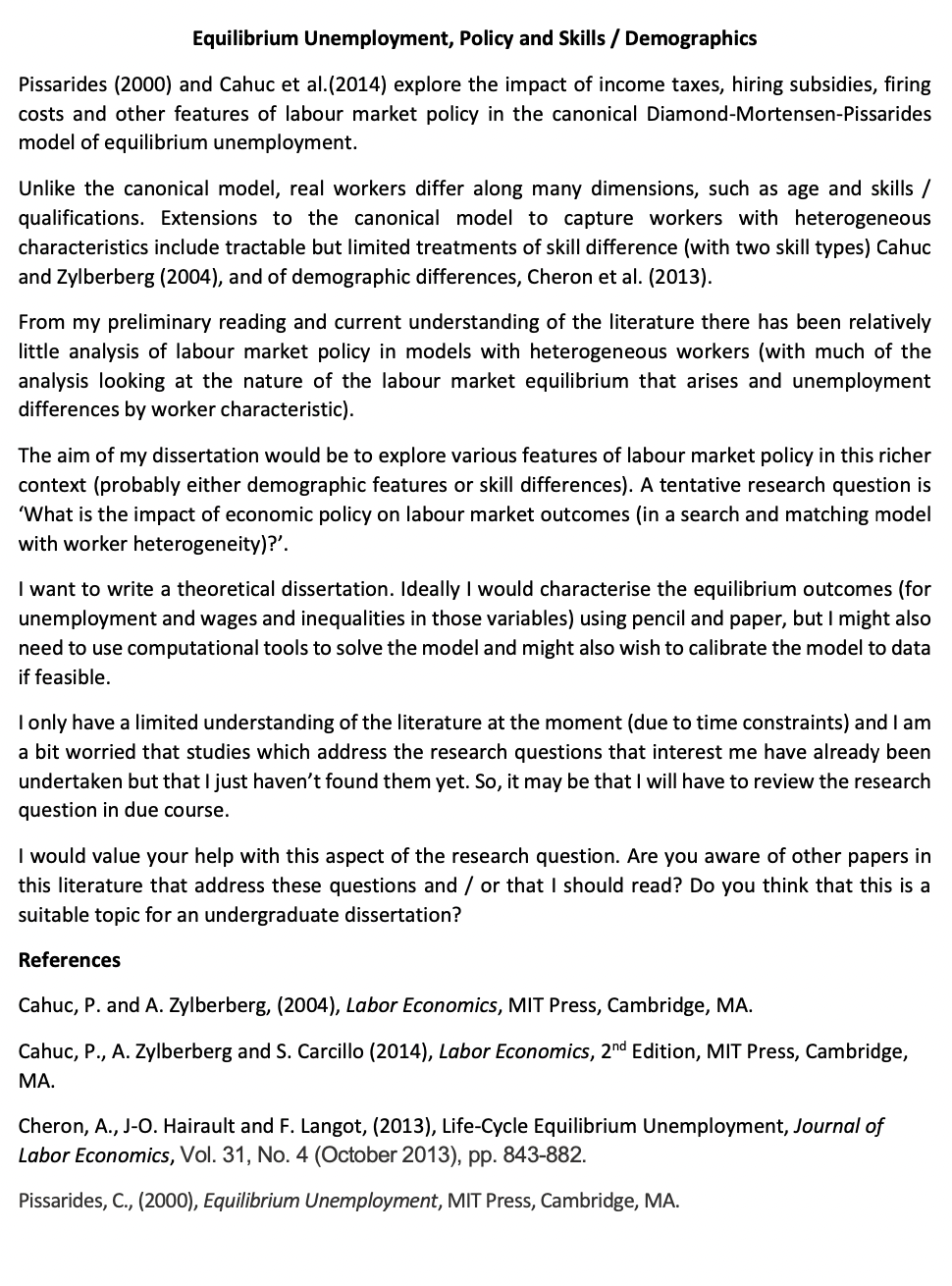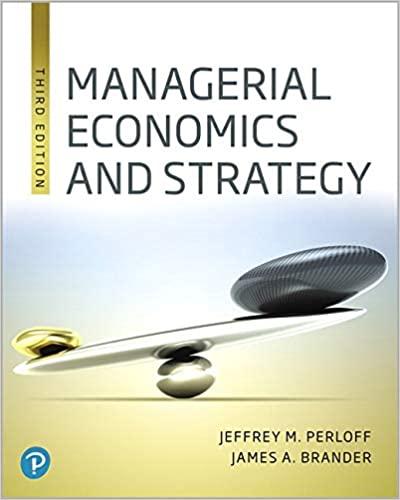Question
Theoretical dissertation proposal The topic is Job Search over the Business Cycle And please do use the following readings for references for producing the proposal

Theoretical dissertation proposal
The topic is Job Search over the Business Cycle
And please do use the following readings for references for producing the proposal
Mortensen, D. T., & Pissarides, C. A. (1994). Job creation and job destruction in the theory of
unemployment. The review of economic studies, 61(3), 397-415.
Shimer, R. (2005). The cyclical behavior of equilibrium unemployment and
vacancies. American economic review, 95(1), 25-49.
Pissarides, C. A. (2009). The unemployment volatility puzzle: Is wage stickiness the
answer?. Econometrica, 77(5), 1339-1369.
Hagedorn, M., & Manovskii, I. (2008). The cyclical behavior of equilibrium unemployment and
vacancies revisited. American Economic Review, 98(4), 1692-1706.
Haefke, C., Sonntag, M., & Van Rens, T. (2013). Wage rigidity and job creation. Journal of
monetary economics, 60(8), 887-899.
Gertler, M., Huckfeldt, C., & Trigari, A. (2020). Unemployment fluctuations, match quality, and
the wage cyclicality of new hires. The Review of Economic Studies, 87(4), 1876-1914.
Mercan, Y., Schoefer, B., & Sedlcek, P. (2021). A Congestion Theory of Unemployment
Fluctuations (No. w28771). National Bureau of Economic Research.
Please come up with at least 5 research questions so I can make a choice or a decision with,
Please find the sample dissertation proposal which is about the labour market.
Thank you so much!

Step by Step Solution
There are 3 Steps involved in it
Step: 1

Get Instant Access to Expert-Tailored Solutions
See step-by-step solutions with expert insights and AI powered tools for academic success
Step: 2

Step: 3

Ace Your Homework with AI
Get the answers you need in no time with our AI-driven, step-by-step assistance
Get Started


